
Although dry skin is not connected with many serious conditions or diseases, people still do not like problem. It can be very uncomfortable to have such skin and sometimes also quite unpleasant to see, especially if it starts to flake. In general, the lower part of the legs and the arms are found to be most likely to have dry skin, but actually, any part of the facial or body skin may be dry.
In many people, dry skin is a temporary problem, but it can also be a sign of more severe and longer lasting problems such as ichthyosis, atopic dermatitis or some other condition.
Why do People Have Dry Skin?
Environmental factors, such as exposure to cold, heat and sunlight are the most common causes of dry skin. Central heating and air conditioning, very hot baths and showers and some inappropriate soaps and detergents can also make the skin dry.
As mentioned, certain medical problems can affect the skin and provoke its dryness and redness. Atopic dermatitis or eczema is not an uncommon skin problem, often appearing on the face and the side of the neck. However, this skin problem can additionally cause dryness of the skin around the wrists, elbows, ankles or knees. Underproduction of thyroid hormones and psoriasis are also known to lead to dry skin issues.
Dry Skin Symptoms and Treatments
A person who has dry skin often sees that his or her skin looks shrunken or dehydrated. The skin feels rough and may start to flake, scale or peel, sometimes very severely, depending on the seriousness of the problem. There are often visible fine lines and cracks, redness or itching. Some people may develop deep fissures which have been seen to bleed under certain circumstances. Many patients with dry skin experience tightness, which is worse after swimming or just showering or bathing.
If the problem does not resolve after regular moisturizing, drinking plenty of water and bathing with mild soaps and warm water – it might be the time to visit your dermatologist and consult him/her about your problematic dry skin.
Large areas of scaling or peeling skin, redness of the skin and some open sores associated with scratching also have to be looked after by a medical professional. Always visit your doctor if the itching or dryness of the skin starts to bother you during sleep.
For extremely dry skin, doctors usually recommend taking creams with lactic acid or the combination of lactic acid and urea. Conditions like psoriasis, atopic dermatitis and ichthyosis may be treated with lotions containing Hydrocortisone.


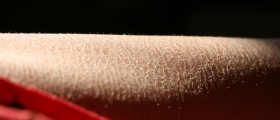


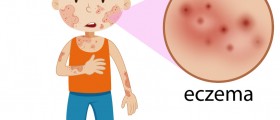




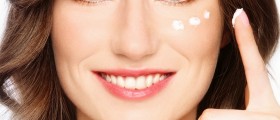
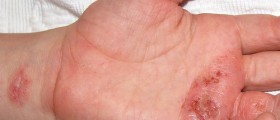
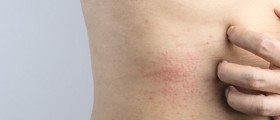




Your thoughts on this
Loading...